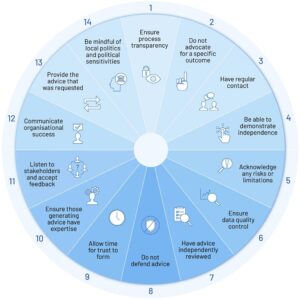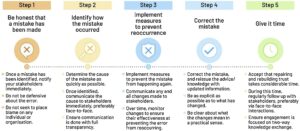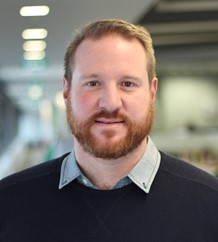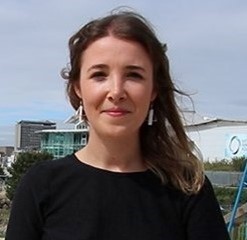Background
Improving knowledge exchange among scientists and decision-makers to enable evidence-informed decision-making processes will be essential for navigating the complexity of marine socio-ecological challenges facing the ocean. Trust is recognised as a critical precondition underpinning successful knowledge exchange among scientists and decision-makers, and thus, the attainment of research impact. In its broadest sense, trust is defined as a psychological state in which an entity (i.e. a trustor) accepts some level of vulnerability based on a positive expectation of another entity (i.e. a trustee). However, there has been a paucity of guidance on how to build, manage and maintain trust in practice, when working at the interface of marine science and policy.
We have addressed this gap in our new study published in Environmental Science and Policy. The paper examines the importance of trust and identified practical and implementable strategies that can be used by scientists and/or research institutions to help foster trust with decision-makers. These insights are based on an in-depth analysis using the International Council for the Exploration of the Sea (ICES) as a case study. ICES is arguably the world’s oldest and most established boundary organisation focused on improving knowledge exchange among marine science and policy to support evidence-informed decision-making processes. Here, we present our key findings.
How important is trust when working at the marine science-policy interface?
All participants of our study considered trust to be critically important for successful knowledge exchange and the attainment of research impact. This was exemplified by one participant who stated that trust is “…vital, absolutely critical. I just don’t see how the [science policy interface] can function if trust isn’t part of the equation”.
We also identified three levels at which trust is important:
- Trust in individuals (e.g. an individual researcher and an individual policy-maker), which was considered important for providing space for open dialogue;
- Trust in the organisation, which focused on organisational legitimacy and credibility, and acting in a way that is free of bias;
- Trust in the process by which knowledge is generated and exchanged.
Fourteen strategies for building trust at the marine science-policy interface
To date, there has been limited guidance for researchers wishing to build trust at the science-policy interface. Drawing on experiences of ICES, we identified 14 practical and implementable strategies or considerations that can be used by scientists and/or research institutions to help foster trust with decision-makers. The 14 strategies or considerations are shown in Figure 1.

Figure 1: Fourteen strategies identified through a case study of ICES for building trust at the interface of environmental science and policy (as published in Cvitanovic et al., 2021).
The five stages of trust repair
Participants highlighted that trust is highly dynamic and fragile. Considerable time and effort is required to build trust. However, trust can be lost far more quickly, in only a matter of days as a result of intentional or unintentional actions. As stated by one research participant:
“[We] might be in a trusted position now, but don’t forget, one huge mistake and you can lose it, or one small mistake that grows into a bigger mistake, and you will lose it”.
Reflecting on their involvement in ICES, and particularly situations where trust with decision-makers had been compromised in the past, participants of our study identified five key steps to trust repair, and specific considerations for each step. The five steps for repairing trust are displayed in Figure 2.

Figure 2: The five stages of trust repair, and accompanying actions, identified through this study of ICES (as published in Cvitanovic et al., 2021).
Concluding remarks
Through this analysis of ICES, we have highlighted the importance and fragility of trust at the interface of environmental science and policy, and identified 14 strategies with key actions to establish and nurture trust between trustor and trustee. Despite the best intentions, however, there are circumstances where trust can be lost or eroded, therefore we also highlight 5 key steps for trust repair. In presenting these insights, this research seeks to provide practical and implementable strategies that can be used by environmental scientists and/or research institutions to help them foster trust with decision-makers, enable improved knowledge exchange and build capacity for evidence-informed decision-making processes.
You can read the full paper here.
Author information
Christopher Cvitanovic, Australian National University and the Centre for Marine Socioecology
Chris Cvitanovic PhD is a transdisciplinary marine scientist at The Australian National University in Canberra. His research is focused on improving the relationship between science, policy and practice to enable evidence-informed decision-making for sustainable ocean futures.

Rebecca Shellock, Australian National University
Rebecca Shellock PhD is a Marine Social Scientist at the Australian National University in Canberra. Her research focuses on Ocean Literacy, knowledge exchange, marine governance and Marine Protected Areas, with the aim of aiding the delivery of effective and equitable ocean governance.
